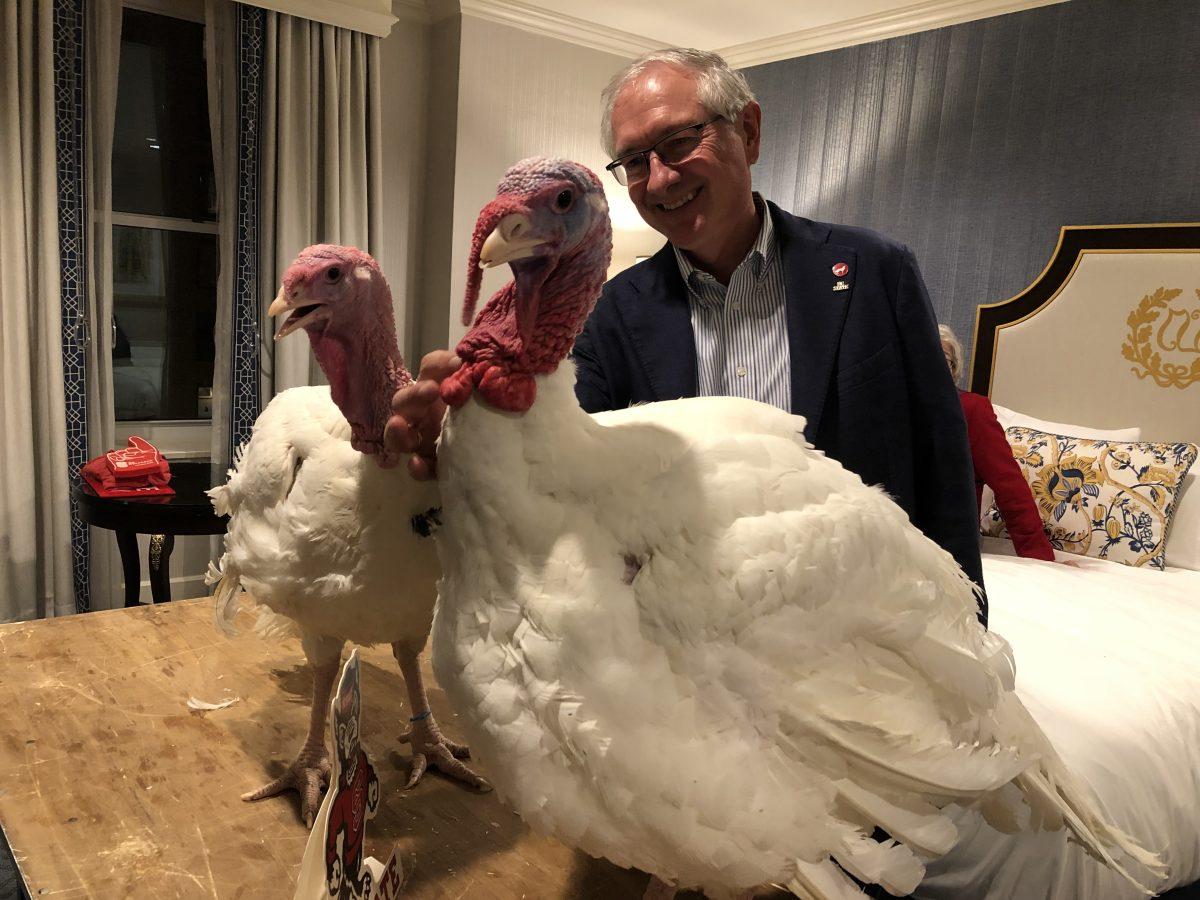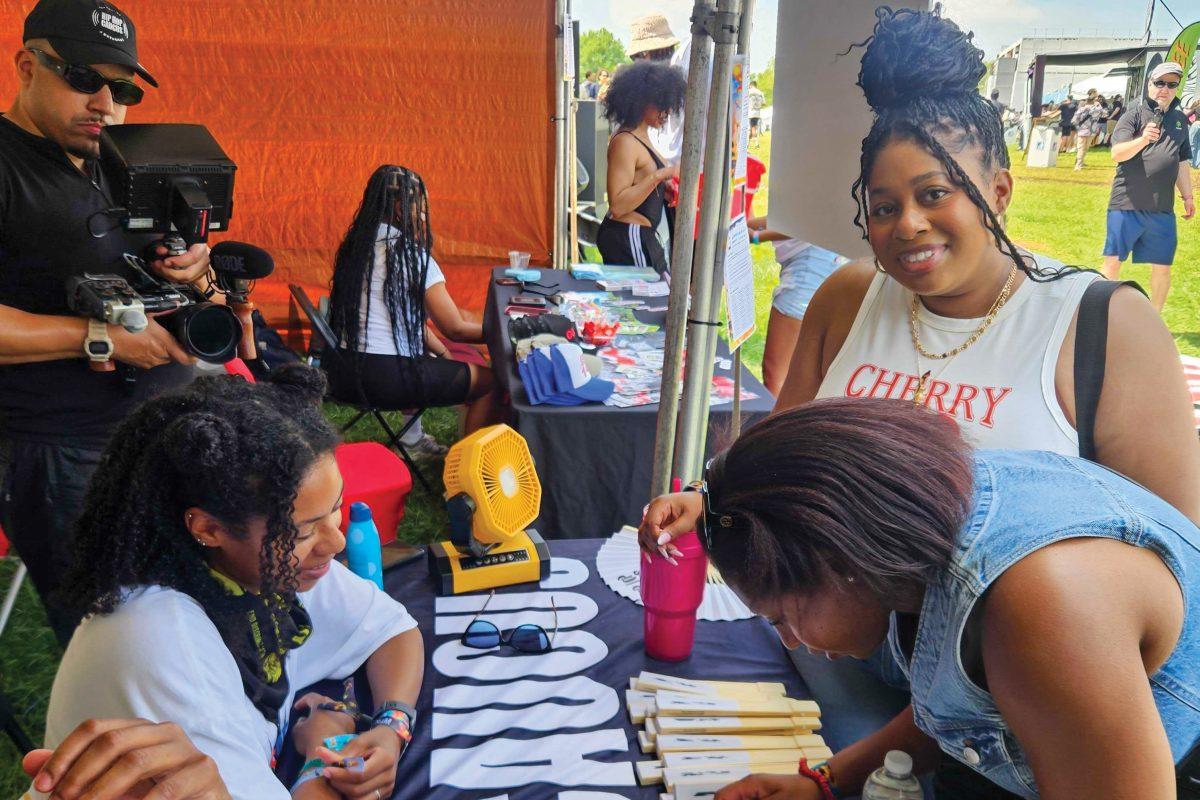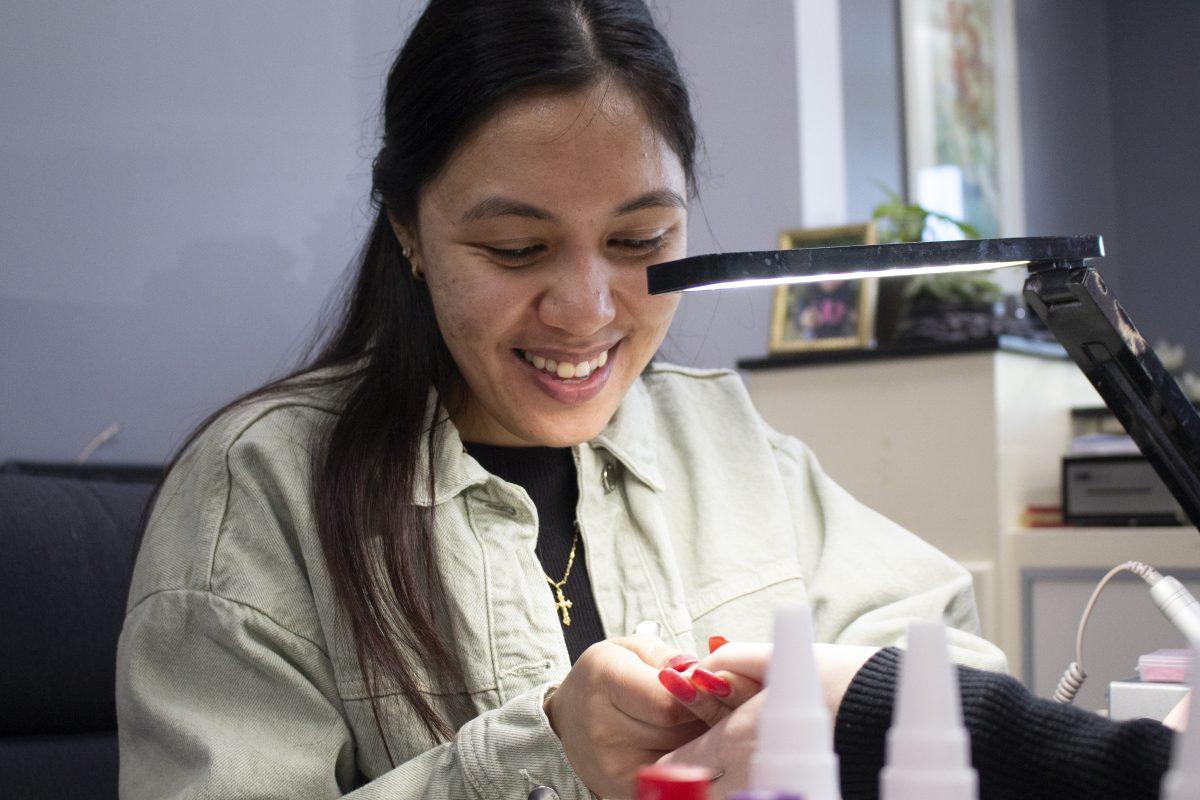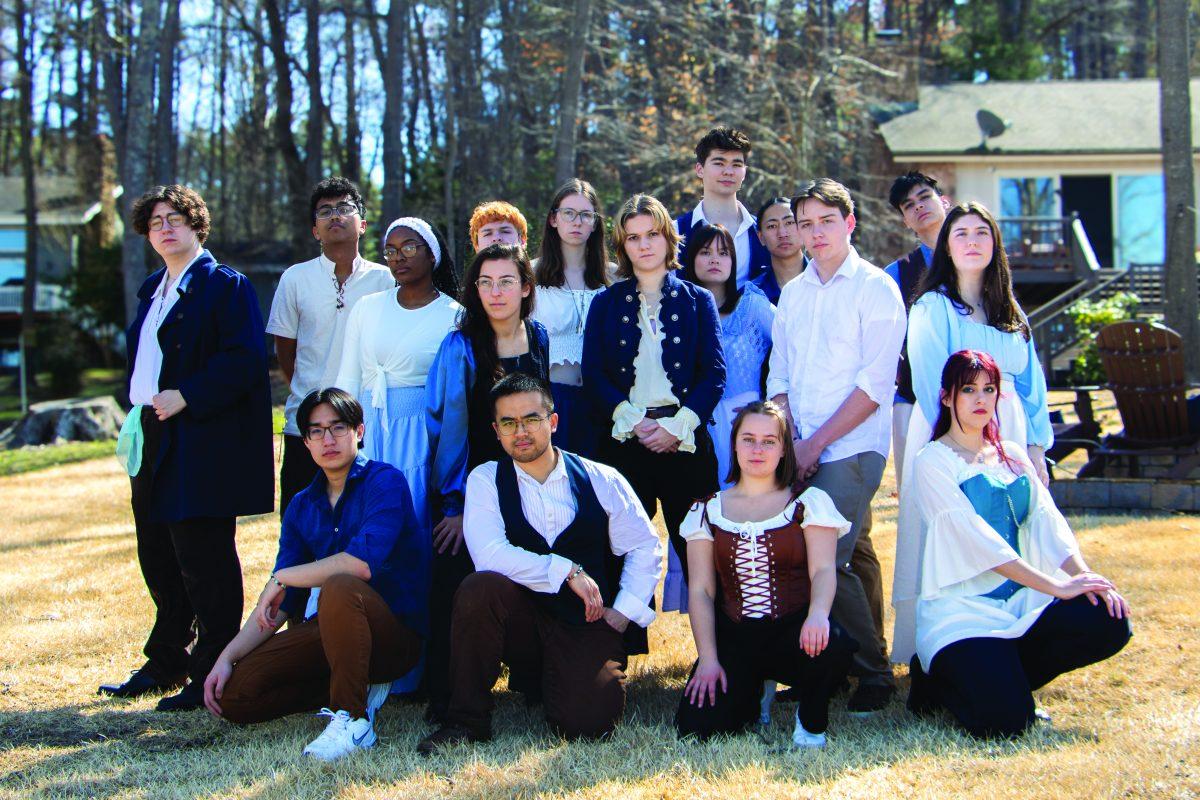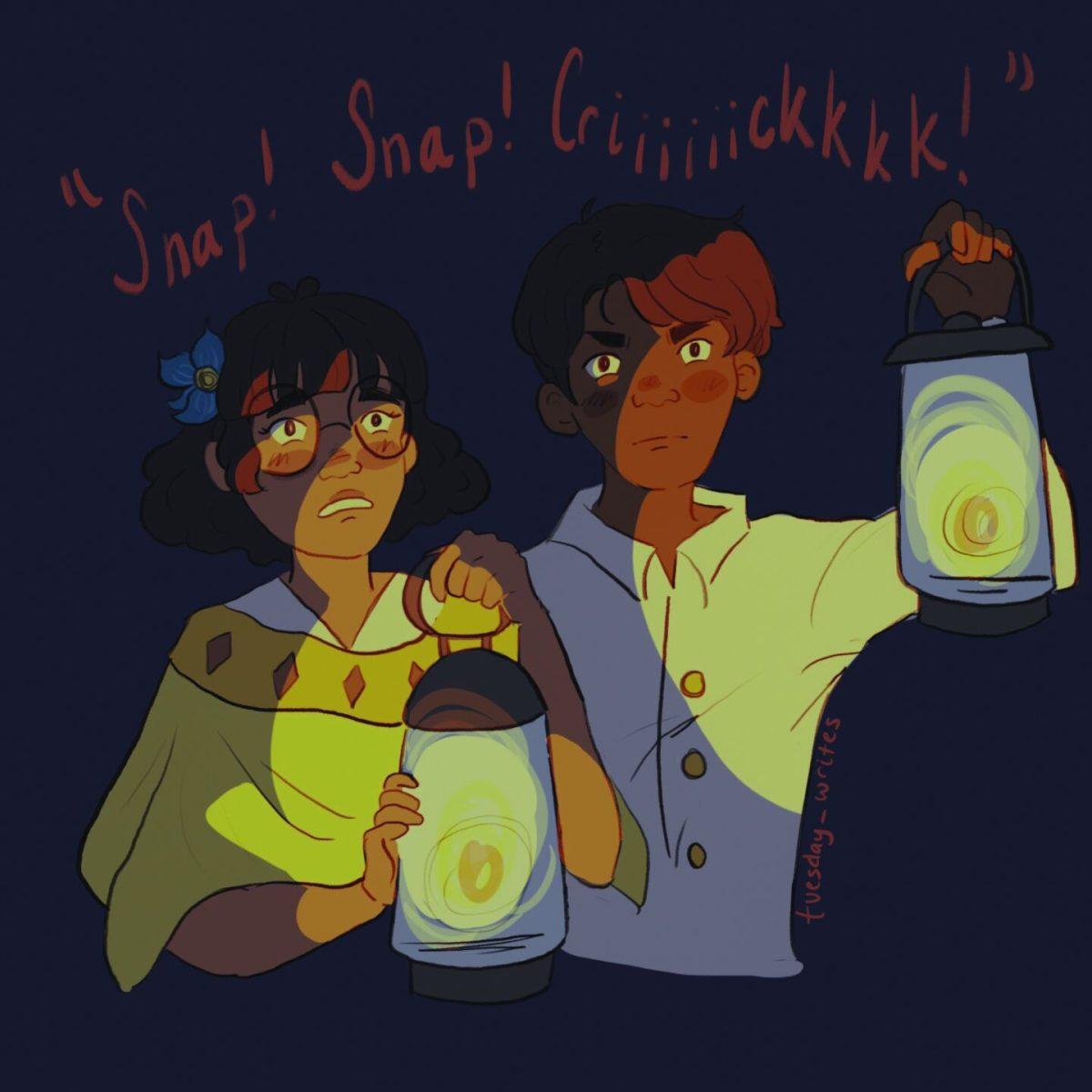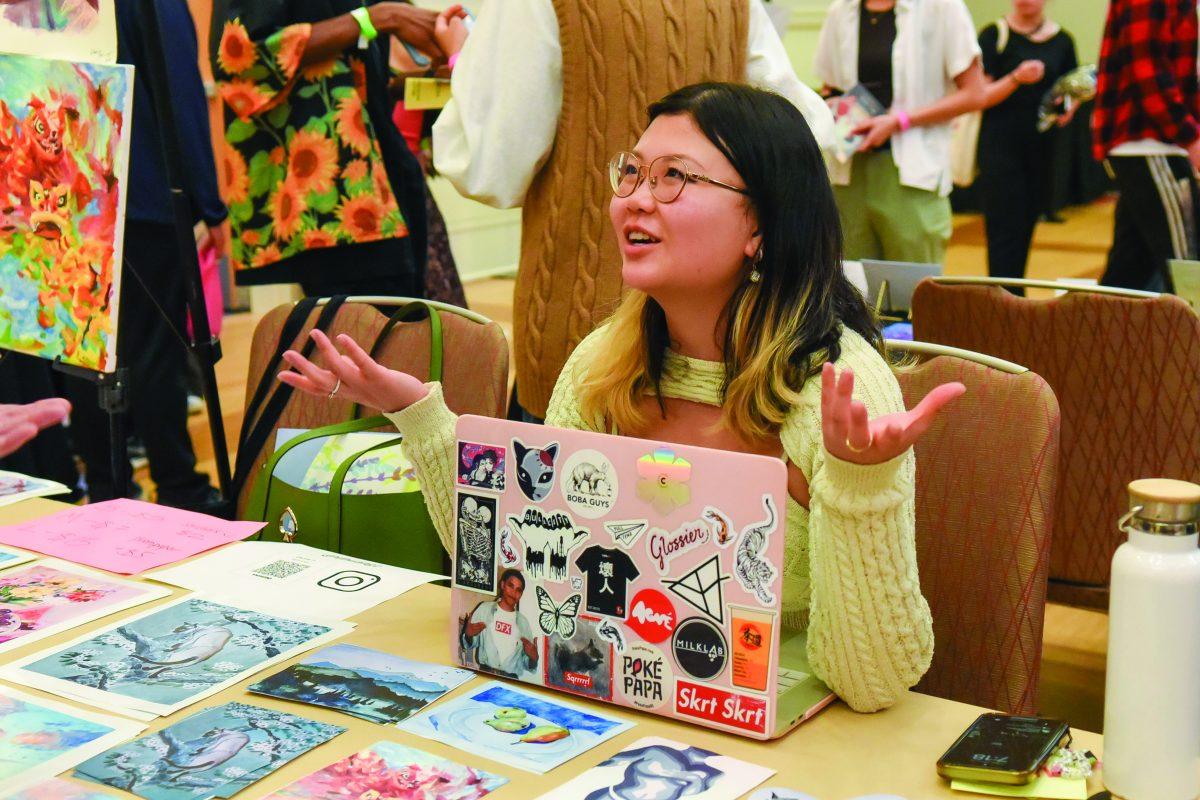Each year, one lucky turkey is chosen to be pardoned by the president of the United States, meaning they will be far from the table on Thanksgiving. This past Thanksgiving season’s pardoned turkey, Chocolate, and his wingman, Chip, were chosen to be kept at NC State’s Talley Turkey Education Unit after their grand ceremony.
Peter Ferket, interim head of NC State’s Prestage Department of Poultry Science, said presenting a turkey to the president has been tradition since the 1940s but originated with the president and his family eating the selected turkey. It was not until the presidency of George W. Bush that the selected turkey was spared from Thanksgiving feasts.
Ferket said choosing the pardoned turkey is typically the last act of the sitting National Turkey Federation president, in which the president always chooses a turkey from their own state and sometimes from their own farm. This past year’s president, Ronnie Parker of Circle S Ranch in Monroe, North Carolina, chose turkeys Chocolate and Chip to be presented to the president.
According to Ferket, the process to select the pardoned turkeys is very thorough. Ferket said Circle S Ranch hatched around 30 eggs and specifically trained these birds to be handled, walked and stand on tables so they would behave accordingly during the ceremony, with the two best-behaved turkeys presented to the president. It is customary to bring a second turkey along the trip in case something were to happen to the primary turkey.
Jesse Grimes, Prestage Department of Poultry Science extension leader and turkey Specialist, accompanied Parker and the turkeys on their trip to the capital, where he said the turkeys traveled to Washington in a minivan and stayed in their own hotel room, which they were led to by red carpet.
Historically, pardoned turkeys were given to preserves just out of Washington and local colleges, such as Virginia Tech, whose mascot happens to be a turkey. In the last few years, tradition has changed to where the pardoned turkeys are given to a land-grant university in the state in which they originated.
Ferket said the federation’s choice to donate the turkeys to NC State gives the Prestage Poultry Department of Science a chance to highlight its importance in the national poultry industry. Ferket said the department produces a third of all poultry science graduates and has the most dedicated poultry science faculty in the country.
“They’re solely here for the purpose of honoring the president’s desire to pardon them and give them a really good life,” Ferket said. “We’re going to do all we can to give them the opportunity to show and tell all about what it’s like to be a turkey at NC State.”
After the ceremony, Chocolate and Chip were transported to their permanent home in NC State’s Talley Turkey Education Unit off of Lake Wheeler Road, in which they now live in large climate-controlled enclosures. Ferket said the pair will be used to represent their species at future events, such as the North Carolina State Fair, and will be used to be observed by poultry science students.
“We call them honorary faculty,” Ferket said. “They’re being watched in terms of special behavior. … They’re going to be here working, they’re just not paid, they basically work for room and board.”
Traditionally, pardoned turkeys have been named after common Thanksgiving foods, such as turkeys “Drumstick,” “Peas,” “Butter” and “Corn,” during the Trump presidency. Ferket said the federation sends a list of suggested names for the turkeys but instead, President Joe Biden chose to name the turkeys Chocolate and Chip, which Ferket said is most likely in reference to ice cream, which Biden has become synonymous with.
Ferket said Chocolate and Chip are both 47-pound broad breasted white turkey toms, which are the most common breed eaten on Thanksgiving. Contrary to the pardoning, turkeys hens are almost exclusively the only turkeys cooked whole for Thanksgiving, as the average hen weighs only half the weight of a tom, which averages around 50 pounds and is used mostly for further processing due to their large size.
Grimes said this event provided a time for tongue-in-cheek humor, but also a time to reflect and be thankful for the work done by farmers in North Carolina.
“It is a day to provide some humor but also a day of Thanksgiving, and where does that sustenance come from?” Grimes said. “It comes from farmers here and in North Carolina, across the nation around the world. It’s a good way to have a little smile on our face, but at the same time to recognize where our support comes from.”


